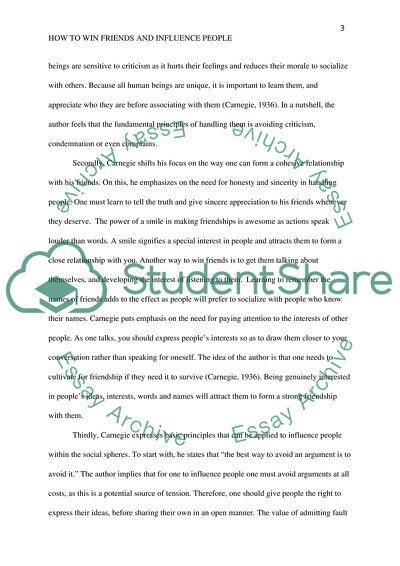Cite this document
(How to Win Friends and Influence People Book Report/Review, n.d.)
How to Win Friends and Influence People Book Report/Review. https://studentshare.org/nursing/1811258-how-to-win-friends-and-influence-people
How to Win Friends and Influence People Book Report/Review. https://studentshare.org/nursing/1811258-how-to-win-friends-and-influence-people
(How to Win Friends and Influence People Book Report/Review)
How to Win Friends and Influence People Book Report/Review. https://studentshare.org/nursing/1811258-how-to-win-friends-and-influence-people.
How to Win Friends and Influence People Book Report/Review. https://studentshare.org/nursing/1811258-how-to-win-friends-and-influence-people.
“How to Win Friends and Influence People Book Report/Review”. https://studentshare.org/nursing/1811258-how-to-win-friends-and-influence-people.


